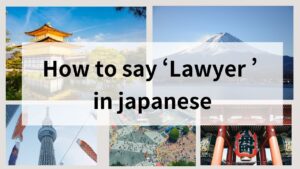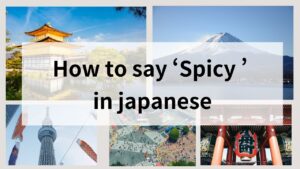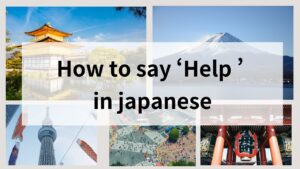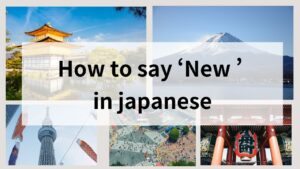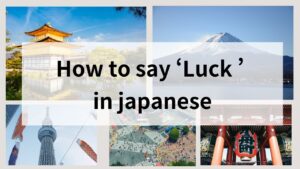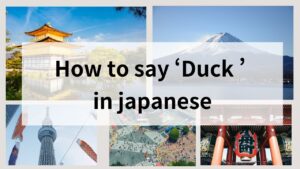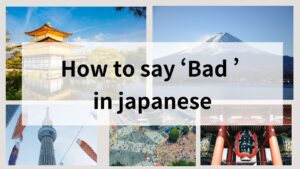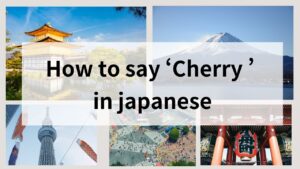Are you curious about how to say “peace” in Japanese? Peace is a concept deeply valued in Japanese culture, representing harmony, tranquility, and the absence of conflict. This guide will explore the Japanese word for “peace,” its cultural meanings, and practical applications.
How Do You Say “Peace” in Japanese?
The Japanese word for “peace” is 平和 (Heiwa). This term is widely recognized and used in both formal and informal contexts. The kanji 平 represents “flat” or “level,” while 和 signifies “harmony” or “peace.” Together, they convey a sense of calmness and balance.
The Japanese Word for Peace: Heiwa (平和)
“Heiwa” is used to describe a state of peace or calmness in various contexts. For example:
- 世界平和 (Sekai heiwa): “World peace.”
- 平和な生活 (Heiwa na seikatsu): “A peaceful life.”
- 平和を守る (Heiwa o mamoru): “To protect peace.”
Kanji for Peace: 平和
The kanji for peace, 平和, is commonly used in literature, media, and discussions surrounding social issues. It embodies the spirit of tranquility and the collective desire for harmony in society.
Does Saying “Peace” Work in Japan?
Using the English word “peace” may not be understood by everyone in Japan, especially in more rural areas. To ensure clear communication, it’s best to use the Japanese term “heiwa” (平和).
The Cultural Significance of Peace in Japan
Peace has been a significant theme in Japanese culture, particularly in the aftermath of World War II. It symbolizes the collective hope for a harmonious society and the prevention of conflict.
Historical Context of Peace in Japan
After the devastation of war, Japan embraced the concept of peace as a national ideal. This historical backdrop has shaped modern Japanese values, emphasizing the importance of harmony and coexistence.
Peace in Japanese Folklore and Philosophy
Japanese folklore often includes themes of peace, harmony, and balance. The philosophy of “wa” (和), meaning harmony, is central to Japanese culture and influences social interactions and community living.
Peace in Japanese Art and Festivals
Art forms such as calligraphy and traditional painting often depict serene landscapes that embody peace. Festivals, like the Obon, celebrate the spirits of ancestors, reinforcing the connection between peace and remembrance.
Practical Applications of “Peace” in Japanese
Understanding how “peace” is used in Japanese can enhance your communication and appreciation of Japanese culture.
Talking About Peace in Daily Conversation
Here are some examples of how “heiwa” is used in everyday conversation:
- 平和が大切です (Heiwa ga taisetsu desu): “Peace is important.”
- 平和のために働く (Heiwa no tame ni hataraku): “To work for peace.”
Peace-Related Idioms or Expressions
Japanese culture includes several idioms and expressions related to peace, reflecting its significance. Here are some common examples:
- 平和な心 (Heiwa na kokoro): “A peaceful heart.” This expression emphasizes the importance of inner peace for overall well-being.
- 平和のメッセージ (Heiwa no messeji): “Message of peace.” This phrase is often used in discussions about social justice and global harmony.
- 平和を願う (Heiwa o negau): “To wish for peace.” This expression conveys a desire for harmony in various contexts.
These expressions highlight the cultural and metaphorical richness of peace in Japanese society. Understanding them can provide deeper insights into Japanese values and communication.
Common Contexts for Discussing Peace
In Japan, discussions about peace often arise in the context of global issues, historical reflections, or community initiatives. Using the term “heiwa” appropriately can foster meaningful conversations about these topics.
FAQs
Here are some frequently asked questions about peace in Japanese culture and language.
Is “Heiwa” Commonly Used in Japan?
Yes, “heiwa” is a common term used in various contexts, including education, media, and public discourse, reflecting its significance in Japanese society.
How Do You Write “Peace” in Japanese?
You can write “peace” as 平和 (Heiwa) in kanji. It can also be expressed in hiragana as へいわ (Heiwa), though the kanji is more common in formal writing.
Conclusion
“Peace,” or “heiwa” in Japanese, represents more than just the absence of conflict—it embodies harmony, balance, and cultural significance. By understanding its role in Japanese language and traditions, you can deepen your appreciation for the value placed on peace in Japanese society.

